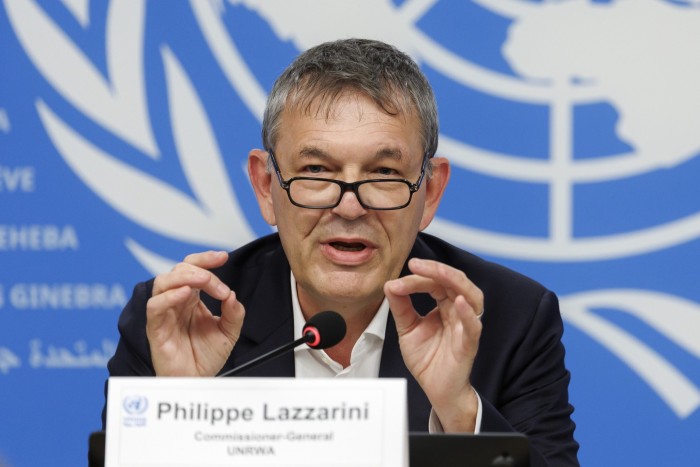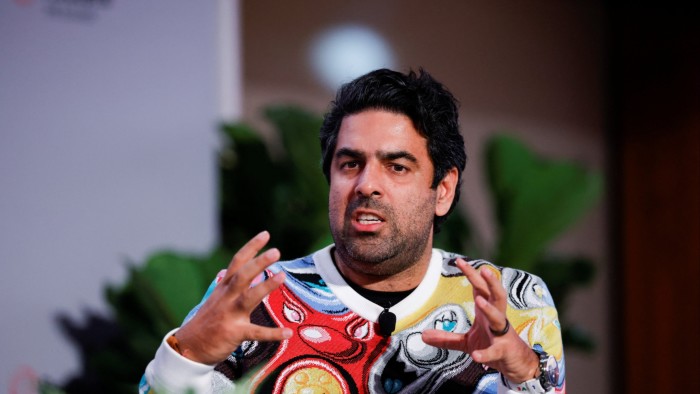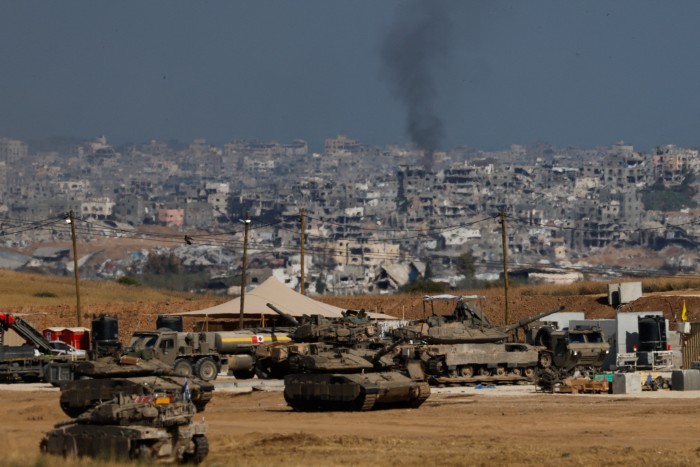Israel’s Gaza aid plan could lead to ‘war crime’, UN agency chief says

Unlock the Editor’s Digest for free
Roula Khalaf, Editor of the FT, selects her favourite stories in this weekly newsletter.
The chief of the UN agency for Palestinian refugees has said Israel’s new aid delivery plan in Gaza could facilitate a war crime, ruling out the UN’s participation in the initiative.
Israel this week began allowing limited quantities of aid into the strip for the first time since March, following mounting international pressure over the catastrophic humanitarian conditions in the Palestinian enclave.
But officials say they will in a “matter of days” implement a controversial US-backed plan in which a little-known foundation would, under Israeli military supervision, deliver aid to Palestinians at a handful of distribution points expected to be concentrated in southern Gaza.
UNRWA head Philippe Lazzarini said the scheme — under which Gazans would potentially have to travel across the war-shattered strip to secure life-saving supplies — falls short of “any basic humanitarian principle”.
“The aid plan which is being proposed is a tool which facilitates the forced displacement of the people,” he told the Financial Times. “And ultimately we know that in [the] context of war, forced displacement of people may constitute [a] war crime.”
Israel argues that requiring Palestinians to pick up food parcels at Israeli-controlled screening points, rather than local distribution points manned by international aid organisations, is necessary to prevent aid being diverted to Hamas.
But Lazzarini said that the “primary intent” of the proposal was to push Gaza’s population to the south, and even out of the strip altogether.
“What’s being proposed here is a weaponisation and instrumentalisation of humanitarian assistance for military purposes and political purposes,” he said. “I don’t see how morally we can justify a humanitarian organisation to be part of such a plan.”
“It’s a tool which basically seems to tell us who can receive assistance and who will be sacrificed,” he said.
The Israeli prime minister’s office did not respond to a request for comment.
Israel’s blockade and offensive, launched in response to Hamas’s October 7 2023 attack, have created a dire humanitarian crisis and sparked growing consternation, including from allies. The UK, France and Canada on Monday said they would take “concrete actions” against Israel if it did not end its renewed offensive and lift restrictions on aid deliveries.
Last week, a UN panel said that nearly half a million Gazans were facing starvation, while UNRWA said that 92 per cent of homes had been damaged or destroyed.
Israel’s Prime Minister Benjamin Netanyahu and his government have also enthusiastically embraced an idea, first floated by US President Donald Trump, to displace the enclave’s 2.2mn population altogether in what has been widely condemned as ethnic cleansing.

While Israel — which says it will not end the war until it has destroyed Hamas and freed the remaining hostages in the strip — has allowed the resumption of a limited amount of aid under a UN-led model, officials said this was a “bridge” until the US-backed plan was operational.
Lazzarini said successful deliveries of aid before the full siege in March had proven that the humanitarian system did indeed work, and that UNRWA had not seen evidence of significant diversion of supplies.
But he added that UNRWA “might review our position” on not participating in the new scheme if it “allows us to have access to anyone who is in need of assistance and allows us to move around”.
While rightwing Israeli politicians have long loathed UNRWA, hostility towards the agency has intensified since Hamas’s October 7 attack.
Israeli officials have accused 19 of the UN agency’s 13,000 staff in Gaza of participating in the assault, and passed legislation banning it from operating on Israeli territory and prohibiting Israeli officials from having any contact with it.
Lazzarini said that while the moves meant UNRWA no longer had international staff in Gaza or the occupied West Bank, its Palestinian personnel were still delivering services but increasingly exposed to “intimidation and bullying”.
He warned that limited aid supplies would not be sufficient to meet the needs of Gaza’s population. “The entire population is facing famine in the coming months if there is no lifting of the siege,” he said. “The question is who wants to be responsible [for] a man-made, fabricated famine.”







